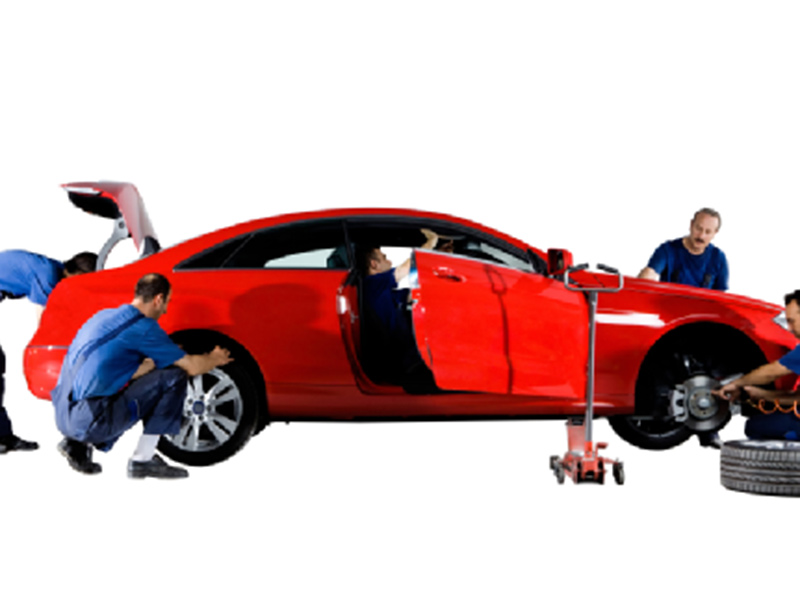All Categories
Featured
Your vehicle's engine is a complex piece of machinery that calls for regular treatment to operate effectively. By taking preventive actions, you can maintain your engine running smoothly and prevent substantial expenses.
Engine oil lubes internal parts, minimizing friction and wear. Modification the oil and oil filter as recommended by your vehicle's supplier-- generally every 5,000 to 7,500 miles for contemporary cars. Using the appropriate type of oil is similarly vital; consult your owner's guidebook to guarantee compatibility with your engine.
The engine's cooling system stops overheating, which can cause extreme damage. Check coolant degrees frequently and replenish as necessary. Additionally, adhere to the supplier's guidelines for flushing and replacing coolant to maintain the system working effectively.
![]()
Engines need a stable flow of clean air for burning. A stopped up air filter can lower gas efficiency and efficiency. When it shows up dirty or after reaching the gas mileage specified in your automobile's upkeep schedule., check the air filter occasionally and replace it.
Weird sounds, decreased performance, or dashboard warning lights typically signify underlying engine concerns. Address these indication without delay by speaking with a certified mechanic to detect and solve troubles prior to they escalate.
Gas high quality directly impacts engine health. Usage gas with the right octane score for your vehicle to prevent knocking and down payments in the combustion chamber. Sometimes, adding a gas injector cleanser can likewise help keep a clean fuel system.
Ignition system are necessary for firing up the air-fuel mix in the engine. Worn-out ignition system can bring about misfires, bad gas economy, and increased emissions. Follow your car's maintenance timetable to change them at the suggested intervals.
![]()
Aggressive driving, such as fast velocity and difficult stopping, areas added tension on your engine. Keep consistent rates and practice smooth driving routines to decrease unneeded deterioration.
![]()
Split or put on belts and hoses can cause getting too hot or various other engine failings. Inspect these elements on a regular basis and change them if you discover any indicators of wear, such as fraying or splits.
Dust and particles can hurt engine parts gradually. Make sure all seals are undamaged and that the air intake system is without obstructions. Regular checks can prevent pollutants from creating damages.
Even if your auto appears to be running well, routine evaluations by a trusted auto mechanic can uncover concealed problems. A professional can recognize wear-and-tear troubles early, saving you from pricey fixings down the line.
By adhering to these precautionary procedures, you can prevent the stress and cost of significant engine repair work. Normal focus and care not only keep your automobile reliable however additionally improve its resale value and overall efficiency.
- Keep the Oil System
Engine oil lubes internal parts, minimizing friction and wear. Modification the oil and oil filter as recommended by your vehicle's supplier-- generally every 5,000 to 7,500 miles for contemporary cars. Using the appropriate type of oil is similarly vital; consult your owner's guidebook to guarantee compatibility with your engine.
- Inspect and Replenish Coolant Consistently
The engine's cooling system stops overheating, which can cause extreme damage. Check coolant degrees frequently and replenish as necessary. Additionally, adhere to the supplier's guidelines for flushing and replacing coolant to maintain the system working effectively.

- Monitor Air Filters
Engines need a stable flow of clean air for burning. A stopped up air filter can lower gas efficiency and efficiency. When it shows up dirty or after reaching the gas mileage specified in your automobile's upkeep schedule., check the air filter occasionally and replace it.
- Be Alert to Indication
Weird sounds, decreased performance, or dashboard warning lights typically signify underlying engine concerns. Address these indication without delay by speaking with a certified mechanic to detect and solve troubles prior to they escalate.
- Use High-Quality Fuel
Gas high quality directly impacts engine health. Usage gas with the right octane score for your vehicle to prevent knocking and down payments in the combustion chamber. Sometimes, adding a gas injector cleanser can likewise help keep a clean fuel system.
- Replace Glow Plugs on schedule
Ignition system are necessary for firing up the air-fuel mix in the engine. Worn-out ignition system can bring about misfires, bad gas economy, and increased emissions. Follow your car's maintenance timetable to change them at the suggested intervals.
- Avoid Harsh Driving Routines

Aggressive driving, such as fast velocity and difficult stopping, areas added tension on your engine. Keep consistent rates and practice smooth driving routines to decrease unneeded deterioration.
- Check Belts and Hoses

Split or put on belts and hoses can cause getting too hot or various other engine failings. Inspect these elements on a regular basis and change them if you discover any indicators of wear, such as fraying or splits.
- Avoid Contaminants from Getting In the Engine
Dust and particles can hurt engine parts gradually. Make sure all seals are undamaged and that the air intake system is without obstructions. Regular checks can prevent pollutants from creating damages.
- Arrange Routine Inspections
Even if your auto appears to be running well, routine evaluations by a trusted auto mechanic can uncover concealed problems. A professional can recognize wear-and-tear troubles early, saving you from pricey fixings down the line.
By adhering to these precautionary procedures, you can prevent the stress and cost of significant engine repair work. Normal focus and care not only keep your automobile reliable however additionally improve its resale value and overall efficiency.
Latest Posts
Boost Your Home with Specialist House Siding Solutions
Published Apr 20, 25
1 min read
Include Comfort and Personality to Your Home with Area Rugs
Published Apr 19, 25
1 min read
Comprehensive Defense for Your Tranquility of Mind
Published Apr 19, 25
1 min read